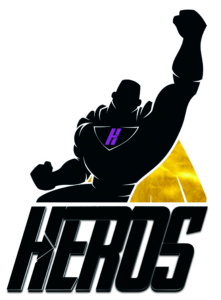Basic Skills Training (BST)
Basic Skills Training (BST): Basic skills training services are rehabilitative mental health interventions designed to reduce cognitive and behavioral impairments and restore clients to their highest level of functioning. BST services are provided to clients with age and developmentally inappropriate cognitive and behavioral skills.
- Basic Living Skills
- Social Skills
- Communication Skills
- Organization and Time Management Skills
- Transitional Living Skills
Helping clients get back to their highest level of functioning.
Psychosocial Rehabilitation (PSR)
Psychosocial rehabilitation is not a technique. It is a strategy operating at the interface between the individual, its interpersonal network, and the wider social context. Psychosocial rehabilitation services are RMH interventions designed to reduce psychosocial dysfunction. Interpersonal cognitive behavioral development and restore recipients to their highest level of functioning:
- Behavior Management
- Social Competency
- Problem Identification and Resolution
- Moral Reasoning
- Identity and Emotional Intimacy
- Self Sufficiency
- Life Goals
- Sense of Humor
Helping clients get back to their highest level of functioning.
Biofeedback
- Neuro-therapy and Heart Rate Variability (HRV) are individual psychological and physiological therapies incorporating biofeedback training, combined with psychotherapy, as a treatment for mental health disorders.
- Biofeedback is a therapy that enhances the performance of the body through either Neurological feedback or Physiological which in return teaches the clients body self-regulation.
Comprehensive Case Management
- Comprehensive Case Management is defined as wrap-around services that motivate and support participants progression towards self-sufficiency.
- Comprehensive Case Management entails a supportive relationship between program staff and participants, in which staff provide guidance and motivation as participants seek training, employment, and advancement.
- Comprehensive Case Management will include but not limited to the following: immediate and intensive intervening sessions to ensure sterilization, continuity or care, and identification of referral resources for ongoing community mental and/or behavioral health.
- Comprehensive Case Management assists with providing clients with resources within the community as far as transportation, food banks, clothing rental vouchers, etc. Everything that is obtainable throughout the community.
Intensive Outpatient Program (IOP)
- A comprehensive interdisciplinary program of an array of direct mental health and rehabilitation services which are expected to improve or maintain an individual condition and functioning level for prevention, relapse or hospitalization. Services provided to individuals who are diagnosed as severely emotionally disturbed or seriously, mentally ill.
- Intensive Outpatient Program (IOP) is a treatment program used primarily in a group setting to treat things such as depression, anxiety, bi-polar disorder, panic disorders, post-traumatic stress disorders, obsessive compulsive disorders, self-harm, chemical dependency, etc., that does not rely on detoxification.
- Intensive outpatient programs provide a multi-disciplinary treatment team consisting of a psychiatrist, counselor and / or social worker who provide a comprehensive approach to help you cope with your problems. It involves group therapy where you will learn to identify and cope with relationship problems, enhance problem solving skills and learn new ways to adapt to individuals’ problems. Individual counseling and family or marital therapy, along with psychiatric medication management may also occur.
- Typical IOP program offers group and individual services for about 10 to 12 hours a week. These services are provided for less than 3 hours per day, up to five days per week, and are like services provided in the hospital.

